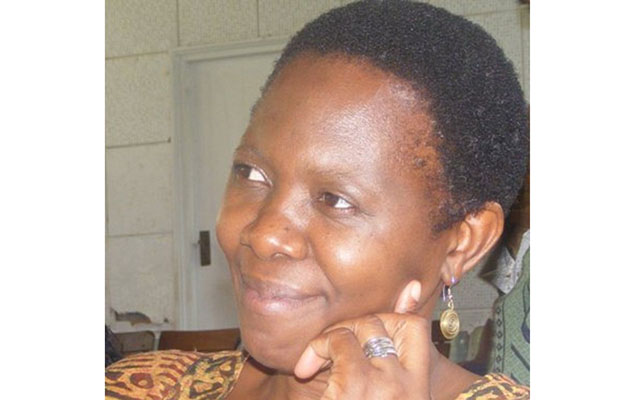Phiri: Self-publishing success story
Beaven Tapureta Bookshelf
In Zimbabwe, Virginia Phiri is the self-publishing guru. Her three books, “Desperate” (2002), “Destiny” (2006), and “Highway Queen” (2010), have impacted academic institutions, researchers, churches and many different readers.
Phiri is the mother for the self-published book. Having come a long way and experienced the rigours of being writer/self-publisher, Phiri always say she still hold no hard feelings against the mainstream publishers.
One of the greatest memories of Phiri’s stern declaration that self-publishing is possible and worthwhile in Zimbabwe will always be her fifteen-minute presentation at the 2017 ZIBF Writers Workshop. She told her story. She said the primary reason for receiving rejection slips from publishers was her fiction’s sensitive subjects considered taboo in many societies.
“Desperate”, a collection of six stories, deals with prostitution. Wherever she has gone to talk about this anthology, Phiri acknowledges that she owes her life to the sex workers who gave her shelter when her life was in danger because of her involvement in the liberation struggle.
Publishers, she said, are also business people accountable to their own executive boards and therefore they could not take a risk by publishing a book with such an embarrassing theme. And there she was, stuck in the middle of nowhere until Dr Xavier Carelse (now late) came along and helped her out of frustration.
“He read my book and he couldn’t help exclaim ‘This is an incredible book!’“ said Phiri. Dr Carelse then suggested that she ventures into self-publishing. With the little savings she had made from her accounting job, she went for it. The anthology became a success. The Department of English at the University of Zimbabwe later used the book in their course and the students were touched by the writings such that they asked their lecturers to invite the author for a reading and discussion.
“In 2006, Professor Ruby Magosvongwe from the English Department at the UZ said to me, ‘The students have said if you don’t come they won’t sit for their exams,’” Phiri said. Her second book “Destiny” addresses the issue of hermaphrodites (now being called LGBT et cetera), again a taboo issue in many societies. She thoroughly researched about the theme and yet the publishers could not take it. Like its predecessor, “Destiny” became a success.
Phiri said after its publication she was approached by a certain Professor from South Africa who had found the book very useful in his researches about two real cases that had happened in his country. In 2010, she published “Highway Queen”, with a note to the readers that confirmed she was determined to pursue themes which society is shy or cowardly to address. The author’s note on the first page says: “As I felt that there was unfinished business in my first book ‘Desperate’, it was only appropriate for me to research and write more about the topic — there were still important issues that needed to be brought to light.”
At the Writers Workshop she said, “In 2010, I thought it’s just a book but it has turned out to be prophetic. Someone who read the book asked me if I am a prophet and I said, ‘No, I am a writer.’” Today, “Highway Queen” is being read in Africa, America and all over the world. Her three books are being re-printed because of the demand, she said.
Phiri is expecting to publish her fourth book titled “Grey Angels” which, she said, will be available in hard copy as well as electronic form just like her other books. At one time she had to invest all the money she had in order to publish her book. The amount of money she used could have bought her a second-hand car but she decided to pour it all into her book. And it paid, not in terms of money as such, but in terms of helping put out a reputation in her community and from there she grew. Psychologically, she says, publishing has helped her empty her mind. Letting out all that screamed inside her to be put on paper eased her mind.
Virginia Phiri has featured in various poetry and short story anthologies in English, Shona and Ndebele. She has also contributed in non-fiction anthologies such as Women in Resilience (2000). Phiri is also an African Orchids expert and has published many articles in international orchid journals. In 1999, a new species of orchid was named after her. The orchid is called “Polystachya Phirii”.
Bookshelf wishes you all a Merry Christmas and Happy New Year.









Comments